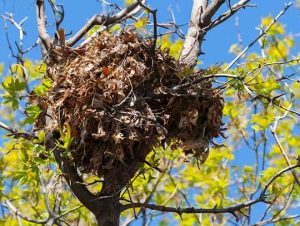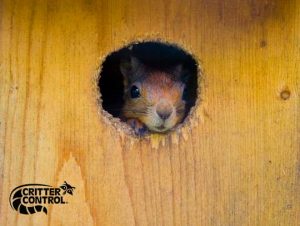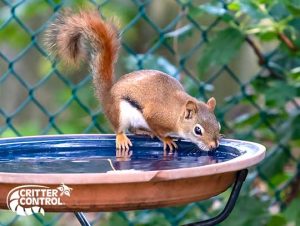
Wild animals like squirrels can be a big nuisance if they manage to infest your Boston property. While it’s important to remove wildlife infestations as soon as possible, things can get complicated if squirrels have made a nest inside your home. Here are some of the problems with DIY squirrel nest removal and why you should instead leave it to squirrel removal experts.
Factors that Affect of Proper Squirrel Nest Removal
Problems removing squirrel nests include:
-
Relocation Distance
For squirrel removal to be effective, it’s recommended to relocate the critter’s nest at least five miles away from your home or business. Some experts recommend a 10-mile distance to ensure they can’t find their way back. This can be difficult to do if you live in a residential area.
-
Prohibited Areas
If you’ve moved the nest enough distance away from your property, you may still have issues finding a legal place to relocate the squirrels. Because of low survivorship risks and concerns over the spread of disease, the removal and relocation of squirrels and their nests may be regulated and not permitted. Furthermore, many local laws prohibit squirrels from being released on public lands. While an undeveloped private area may seem viable, being next to an urban or suburban area will likely mean the problems get passed on to other residents.
-
Nesting Season
If you try to relocate during nesting season, this comes with an extra set of precautions. Baby squirrels are extremely vulnerable and have extra legal protection around them. Mother squirrels often have a hard time relocating, especially if they’re brought into a new territory. This can cause extra stress on both the mom and young.
The Dangers of DIY Squirrel Nest Removal
DIY squirrel removal can be harmful for both you and the critter and often creates more problems than it solves. While squirrels are generally docile critters, they can bite, claw and scratch when cornered or handled. Therefore, it’s important to have squirrel nests safely and properly removed from your property by licensed and trained professionals.
If you’ve noticed squirrels on your property, rely on the professionals at Critter Control® of Boston for safe, effective and humane squirrel nest removal services.
Professional Boston Area Squirrel Nest Removal Services
At Critter Control® of Boston, our wildlife removal technicians are equipped and prepared to remove unwanted wildlife and their nests using non-toxic, chemical-free and low-risk methods. Our four-step CritterSafe® process includes:
- Inspection: Our team will conduct a thorough walkthrough of your home’s interior and exterior to determine the size and extent of the infestation.
- Removal: Using our licensed and eco-friendly techniques, we will remove all squirrels and their nests from your property.
- Prevention: To prevent squirrels from returning, we’ll install preventative measures and seal entry points.
- Restoration: Any property damage caused by the squirrel infestation will be restored to its original condition.
If your Greater Boston home or business is experiencing a squirrel problem, rely on the professional squirrel removal experts at Critter Control® of Boston. To schedule your property inspection and receive a free estimate for our effective squirrel removal services, call us today at 617-975-0440.






 Clever and agile, Squirrels are adept at gaining entry into Greater Boston area residential homes and commercial businesses. The invasive rodents often target overlooked exterior crevices and passageways such as underneath broken roof shingles or through small gaps in house siding. Once they’re inside your property, squirrels can disrupt and defile your home or place of business by scurrying up and down your walls or across your attic floors causing disturbing sounds and smells.
Clever and agile, Squirrels are adept at gaining entry into Greater Boston area residential homes and commercial businesses. The invasive rodents often target overlooked exterior crevices and passageways such as underneath broken roof shingles or through small gaps in house siding. Once they’re inside your property, squirrels can disrupt and defile your home or place of business by scurrying up and down your walls or across your attic floors causing disturbing sounds and smells.